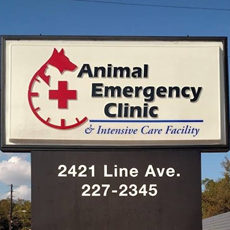Library
-
Milbemycin oxime + spinosad is a heartworm disease preventive that also controls hookworms, roundworms, whipworms, and fleas in dogs. Milbemycin oxime + spinosad is given by mouth as a flavored chew tablet. At prescribed doses, this medication is well-tolerated. Your veterinarian will advise you on the safety of this product’s use in your dog. If you suspect an overdose or an adverse reaction to the medication, call your veterinary office immediately.
-
Silymarin is an over-the-counter nutritional supplement that is used off-label and is given by mouth to treat liver and cancer conditions. Give as directed. Side effects are uncommon but may include vomiting or diarrhea. Do not use it in pets that are allergic to it. If a negative reaction occurs, please call the veterinary office.
-
Minocycline is given by mouth and is used off-label to treat certain bacterial infections and as a part of the heartworm treatment protocol. Give as directed. Common side effects include stomach upset, such as vomiting, decreased appetite, and diarrhea. Do not use in pets that are allergic to it or that are pregnant, nursing, or are very young. If a negative reaction occurs, call your veterinarian.
-
Mirtazapine is given by mouth or is applied to the skin and is used to treat weight loss in cats and is used off-label to treat inappetence, nausea, and vomiting in cats and dogs. Give as directed. The most common side effects include vocalization, restlessness, vomiting, incoordination, or trembling. Do not use it in pets that are allergic to it or that have recently used an MAOI. If a negative reaction occurs, call your veterinarian.
-
Misoprostol (brand names Cytotec®, Arthrotec®) is a prostaglandin E1 analog drug. It is used off label (extra label) to treat or prevent stomach ulcers due to NSAID use in cats, dogs, and horses. It can also be used in combination with other medications to treat uterine infections, protect the kidneys, treat skin allergies, or to terminate pregnancy.
-
Mitotane is primarily used to treat Cushing's disease in dogs. It has also been used to treat adrenal gland tumors. Mitotane reduces the amount of cortisone-like hormones produced by the adrenal cortex.
-
Molidustat (brand name Varenzin-CAI) is a medication used to treat anemia (low red blood cell number) in cats with chronic kidney disease. Molidustat helps increase red blood cell production. It is conditionally approved for use in cats only. It comes in liquid suspension form.
-
Molnupiravir is an antiviral used to treat feline infectious peritonitis (FIP) in cats. This medication is used off label in veterinary medicine. Molnupiravir comes in oral capsule form.
-
Mometasone furoate + gentamicin sulfate + clotrimazole topical ointment is a combination topical ear medication used to treat bacterial and/or yeast ear infections in dogs. It comes as a liquid suspension and is applied topically to the affected ear once daily.
-
Mometasone combinations are applied topically to the skin and are used on and off label to treat skin lesions. The most common side effect is inflammation at the application site. It should not be used on pets that are allergic to it, are pregnant, have tuberculosis of the skin, or in pets with a ruptured ear drum. If a negative reaction occurs, please call your veterinary office.




